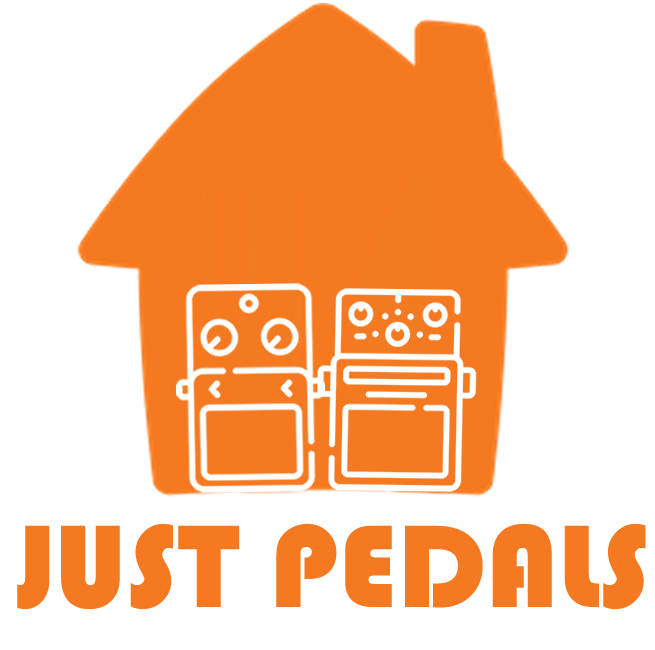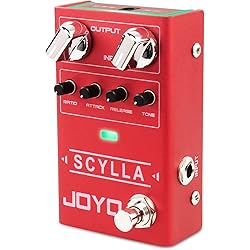Just – Guitar Effect Pedal Videos – First Distortion Pedal #guitar
Just – Guitar Effect Pedal Vids – First Distortion Pedal #guitar
JOYO Bass Guitar Pedals Compressor Effect Pedal with Precise Compression Knobs Low Noise and High Dynamic Control Range for Bassist Electric Guitar Bass (SCYLLA R-27)
£54.99 £46.74
Bass compressor pedal, specially designed for bass guitarists,its circuit is designed to feature low noise, high dynamic control range, anyway, a studio-grade pedal. Deliver various types of compression via ATTACK/RELEASE/RATIO knobs. TONE knob retai… read more
Donner Triple Looper Pedal, Loop Effect Pedal with Screen, 3 Loops 30 mins Looping Time, Loop Station Unlimited Overdubs Undo/Redo True Bypass
£63.21
[Looper with Screen] The bright screen shows the current loop mode, time progress and accurate timing, so just focus on playing! [3 saving slots] Donner Triple Looper has 3 slots for saving loop tracks and each can store up to 30 mins. [One Knob to R… read more
BOSS SDE-3 Dual Digital Delay Pedal | The Authentic Sound of the Legendary Roland SDE-300 | Compact Pedal | Versatile Modern Features | Longer Delay Times Up To 1600msec | MIDI/IO Connectivity
£172.00 £159.99
The iconic character of the Roland SDE-3000 rackmount delay in a BOSS compact pedal. Beautiful vintage digital delay tones with expanded creative range. Distinctive modulation with independent Rate and Depth knobs. Hi Cut control for shaping the high… read more
XSONIC ULooper Dedicated Looper for Guitar Amps with Unaltered Loop Sound, 180 Min Recording Time, Line Out, Portable Power Options, support Spark, KATANA, THR, Mustang, and much more
£118.99 £95.19
Unaltered Loop Sound: Ensures your loops retain their original sound, unaffected by any changes to the amp's presets or tones. Extended Recording Time: Provides up to 180 minutes of recording time with standard looper functions like record, playback,… read more
BOSS SY-1 Synthesizer Guitar Pedal, 121 Ultra-Responsive, Polyphonic Sounds, Easy, Plug-And-Play Experience, Purple
£208.00 £179.00
With the SY-1, it’s never been easier to infuse your creative arsenal with BOSS’s legendary guitar synth technology. The SY-1 transforms any guitar or bass into a versatile synthesizer that’s fun, inspiring, and ready to play. Backed by advanced tech… read more
NU-X | The Reissue Series 63 Diamond Pedal | Emulate the Classic British 30-Watt Class-A Valve Amplifier Overdrive Tone Sound with Ease, Mimics the Original Amplifier’s Functionality
£44.99 £39.00
Classic British Overdrive | Experience the iconic class-A overdrive tones reminiscent of the legendary British 30-watt valve amplifiers from 1959 Authentic Controls | Fine-tune your sound with genuine Volume, Master, and Cut controls, and add extra b… read more


















